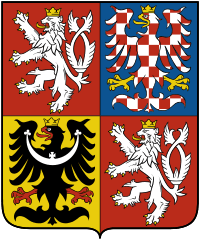Who we are

Published
Updated 9-12-2015
Have you ever heard of a unique rotunda which was discovered in the cellar of the Faculty of Mathematics and Physics in Lesser Town Square (Malostranské náměstí) in Prague? Are you going to see the Brave New World exhibition in the DOX Centre for Contemporary Art, or Sniper’s Lake, a Czech-Norwegian dancing drama about refugees? Do you use social media and know of the HateFree campaign against violence and hatred? Are you engaged in activities promoting equal rights of women and men? Do you know anyone in your surroundings who took part in a study stay in Norway, Iceland or Liechtenstein?
If you answered YES to any of the above questions, then you probably know that all the places and activities mentioned are connected with one common denominator - the EEA and Norway Grants. The Czech Republic has been a recipient of this financial support since 2004 when we joined the European Union and therefore the European Economic Area (EEA) as well, which is an agreement between the EU and countries of the European Free Trade Association (EFTA). Since 2004 the Norway Funds supported various interesting projects for more than CZK 6 billion in the Czech Republic.
The supporters are three non-member countries of the EU, but member countries of the EEA, namely Norway, Iceland and Liechtenstein. The recipients of the financial support are 16 countries in Central, Eastern and Southern Europe, i.e. predominantly the so-called new EU member countries.
The main purpose of the grants is to diminish social and economic differences in Europe and to strengthen bilateral contacts and mutual cooperation. The great emphasis placed on sharing and exchange of experience and competences between the donors and recipients is an important aspect which distinguishes the Norway Grants from other EU grants.
At the present time the second grant period is in full progress, in which the Czech Republic will use approximately CZK 3.5 billion. While in the first period almost a half of the support was invested in revitalization of the cultural heritage, now the funds are distributed more evenly and allocated to priority areas, such as support of contemporary art, environmental protection, social and health development, cooperation in education, science and research, support to the non-profit sector or cooperation in justice.
Special attention is paid to topics such as good government, sustainable development, the fight against intolerance and corruption and equal opportunities for women and men, which Norway regards as absolutely key values. These values are also supported through a special fund for non-profit organizations, thanks to which the civic society becomes more visible in all areas of public life.
The main coordinator of the EEA and Norway Grants in the Czech Republic is the Ministry of Finance, which also manages most of the programmes in cooperation with the competent Ministries. To ensure better coordination of social priorities and to support bilateral cooperation, the government institutions from Norway participate in the administration of six programmes. Numerous Norwegian institutions then cooperate directly with Czech partners on projects and complementary activities.
How to participate?
For the ones who are thinking about a project in the future and want to make or enhance contacts with partners from Norway, Iceland or Liechtenstein, now is the best time to start. For mutual business visits or participation in seminars, conferences and other events, it is possible to apply for a grant from the so-called Fund for Bilateral Relations at National Level within the current open call.
As regards new big projects, the applicants have to wait for the third grant period in which the implementation phase should start approximately in 2017. The beginning looks good. Because in July Norway, Iceland and Liechtenstein reached an agreement with the EU under which they will contribute EUR 400 million p.a. to fifteen countries in Europe by 2021. This could also be promising for the Czech Republic, which will be able to continue to use not only generous grants, but also valuable experiences regarding functioning of a modern democratic society, which Norway surely can offer.

